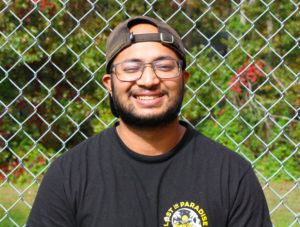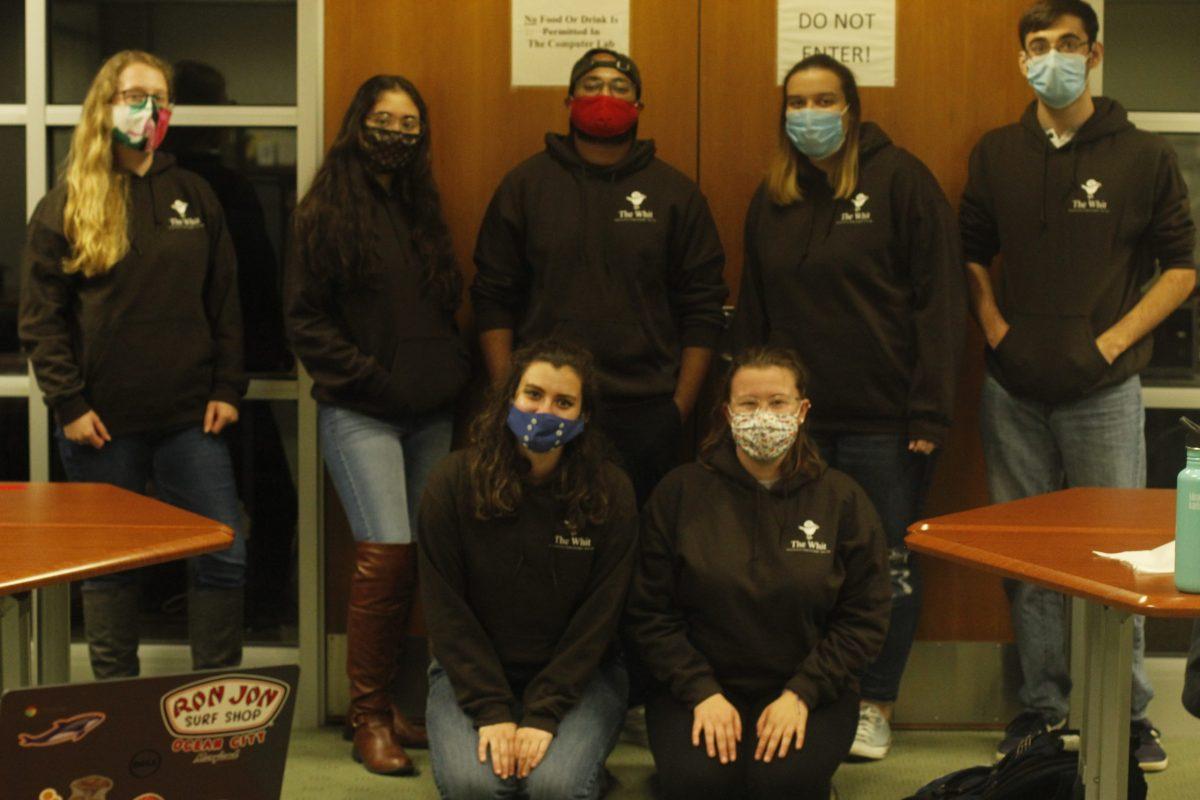Almost everyone has had a job at some point in their life. Before getting a job, there is an interview, where you try your best to give your future employer a good first impression of yourself.
It’s no different when interviewing for a job in your career field or an internship, especially if it’s something you worked on throughout college. Whether it be for a news broadcast or a retail place, it can be nerve-racking. The editors from The Whit have taken it upon themselves to give you some tips on how to handle internship and/or job interviews.

Kalie VanDewater – Editor-in-Chief
I’ve done about five interviews during my college career — for both jobs and internships — and it doesn’t get less nerve-racking. Each interview still makes me anxious, between being thrown curveball questions to not knowing whether you’ll be offered the position. Whether you get that job or internship lies in this one conversation with a hiring manager or supervisor, and that’s tough.
The biggest thing that has helped me overcome this interview anxiety is that the interviewer is, in fact, just another person. No matter what their title is or how much more experience they have than you, the important thing is that you approach them like a person. They’ve been in the same situation as you, and they had to go through interviews to get the position they’re in now, so they know how your feeling. For me, that’s comforting; they know that you’re nervous because they’ve been there.
Their goal isn’t to make you nervous; rather, it’s to see if you’re a good fit for the position. Just approach the interview with confidence in yourself and your abilities and you’ll be good to go.

Tara Lonsdorf – Managing Editor
Prove to your employer why they need you on their team and working for them.
I like to come into my interviews extremely prepared, as if I’m going to start working that day. Questions include things like: what would my specific job duties entail? What can I expect from a typical day at this workplace? What kind of feedback will I receive? What have former employees or student workers gone on to do after working here?
I also like to come in with specific potential plans for how I could improve their outcomes and what my organizational structure would be. This may require some research on your potential employer to gauge what they’re already doing and some thought in identifying how they could improve. But it’s worth it; when you bring in a unique skillset and perspective that can help meet your employer’s goals, you’re already proven that you can contribute to the team. That speaks much louder than any resume can.

Luke Garcia – Arts and Entertainment Editor
Always prepare for interviews. Look up every piece of information you can find on the company or organization that you want to work for. It’s very possible that may help you in answering the interview questions.
Always have proper posture in interviews and maintain eye contact. This is a simple but very important part of looking professional. It also helps the interviewer trust you more.
Don’t try to be someone you’re not. Always be yourself because that’s how you’ll be able to have the most genuine conversations. Hiring managers can tell.

Mohammed Fuad – Features Editor
My biggest advice is to go into these interviews with a clear head and open mind. You do not want to overthink or else it could end badly. For me, I would try to relax and just go with the flow.
An interview is not easy and the nerves can consume you but I would treat each interview like you and the interviewer are just getting to know each other. The important thing to remember is to be yourself and not create a different persona just because you’re trying to impress them as someone that you’re not.
Another important thing to remember is that even if you felt like you bombed the interview, don’t let that get to you. It’s always important to have a bad interview because you can reflect on what you did wrong and try to improve that for the next interview. Like a job or internship, take that interview you failed at as a learning experience so you can be better and get a sense of what the next interview could be like.

Taryn Guettler – Copy Editor
In all the interviews I’ve had, I’ve always been asked to give examples of times when I exhibited a certain skill or overcame some type of challenge. Having a few go-to stories for these types of questions can be really helpful. If you know the details of these stories ahead of time, it’ll be easier for you to pick out the parts most relevant to the question you were asked and that best demonstrate your skills. When picking out these stories and examples beforehand, consider what skills are important for the position you’re interviewing for and the times you’ve shown those skills.
First impressions are also very important. Make sure to dress professionally, but also have an understanding of the work environment so that you’re not over or underdressed. When greeting the interviewer, make eye contact and shake hands (at least, once the pandemic is over). If you make a mistake in your introduction, don’t sweat it. Dwelling on a small mistake can throw you off for the rest of the interview.
For comments/questions about this story, email [email protected] or tweet @TheWhitOnline.

























































































































































!["Working with [Dr. Lynch] is always a learning experience for me. She is a treasure,” said Thomas. - Staff Writer / Kacie Scibilia](https://thewhitonline.com/wp-content/uploads/2025/04/choir-1-1200x694.jpg)









































